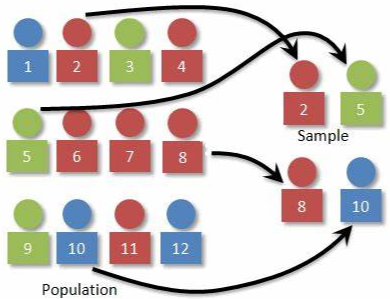In this tutorial, we will introduce random.sample() function, which will capture some random elements from a python sequence. It is very helpful to generate a randomized sequence.

What is random.sample()
random.sample() is defined as:
random.sample(sequence, k)
It returns k length randomized sequence from sequence.
We will use some examples to illustrate you how to use this function.
Randomize a python list
Here is an example:
import random list = ['tutorial','python', 'tutorialexample.com', 'python list'] lx = random.sample(list, len(list)) print(lx)
The result is:
['tutorialexample.com', 'tutorial', 'python list', 'python']
From the result, we can find random.sample() function will return a new object, which will not change the value of python list list. It is different to random.shuffle().
If you only get 2 length, you can do like this:
lx = random.sample(list, 2) print(lx)
Then you will get:
['python list', 'python']
Randomize a python tuple
Python tuple is an immutable sequence, to shuffle it, we can do like this:
x = (1, 2, 3, 4) xs = random.sample(x, len(x)) print(xs)
The randomized pytho tuple is:
[1, 3, 4, 2]